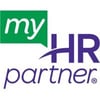Anyone who has employees and survived a tumultuous year in workforce-related issues -- knows that just doing the bare minimum in human resources isn’t enough to stay competitive anymore. Just take a look at some of the big issues that surfaced in one year, 2017, according to report from the Society for Human Resources Management (SHRM):
- The new requirements and changes for employers resulting from the historic tax bill
- The #MeToo movement’s focus on sexual harassment, assault and discrimination
- H-1B work visas, Form I-9, Deferred Action for Childhood Arrivals (DACA) and other immigration status issues the effected employees, including travel bans
- The Affordable Healthcare Act (ACA) changes
- Proposed, rescinded and enacted changes to employer family leave rules, Occupational Safety & Health Administration (OSHA) rulings and Department of Labor (DOL) retirement plan regulations
- Rulings and appeals of interpretations of Americans with Disabilities Act (ADA)
- Medical marijuana users’ rights and responsibilities in the workplace
- First Amendment rights of employees
- Hurricane, wildfire and natural disaster preparedness
And that’s just the stuff we have room to share here! While it was an epic year for HR changes, we can only expect to see the frenetic pace continue.
No wonder dealing with HR has left so many employers exhausted, confused and a bit nervous. Beyond dealing with changes in the current legal, economic and social environments, businesses are also dealing with workforces that are changing in size and composition. This is absolutely NOT the time to keep HR items on the to-do list too long.
It’s time to rethink how you do HR
With any workforce, employers have HR issues and responsibilities that they can’t ignore – things like staying compliant with ever-changing regulations, eliminating inefficiencies that cut into profits and attracting top talent to your organization. And these things change with time, too. Whether your organization is scaling up or down, outsourcing HR makes sense. Here are three big reasons why:
-
Your team won’t be blindsided with HR issues as it grows.
As your organization scales, certain thresholds can trigger the need for HR actions that internal teams might not be prepared for. This can be the case if your workforce streamlines as well.
-
You don't have to hire more HR people.
For a lot of employers, hiring more HR staff in the middle of a growth spurt isn’t practical. Outsourcing some or all of your HR needs to experienced, highly trained experts is a great option. This allows you to keep your workplace running optimally and in compliance. Plus, your outsourced HR partners can help you determine if adding to your HR team makes sense in the long haul.
-
You can stay competitive even if you're not a big corporation.
Not-for-profit organizations and private foundations, which typically need to run lean workforces, can also benefit greatly from outsourcing their HR functions and processes. Outsourcing HR allows you to stay focused on your missions while properly supporting their staff, all without acquiring the large overhead costs of a full in-house department.
HR can finally work for you and improve your bottom line
Now more than ever, HR encompasses so much of what makes your organization run smoothly, successfully and efficiently. And when you realize that HR is an investment, not an expense, you can look at outsourcing to help maximize the return on this investment.



